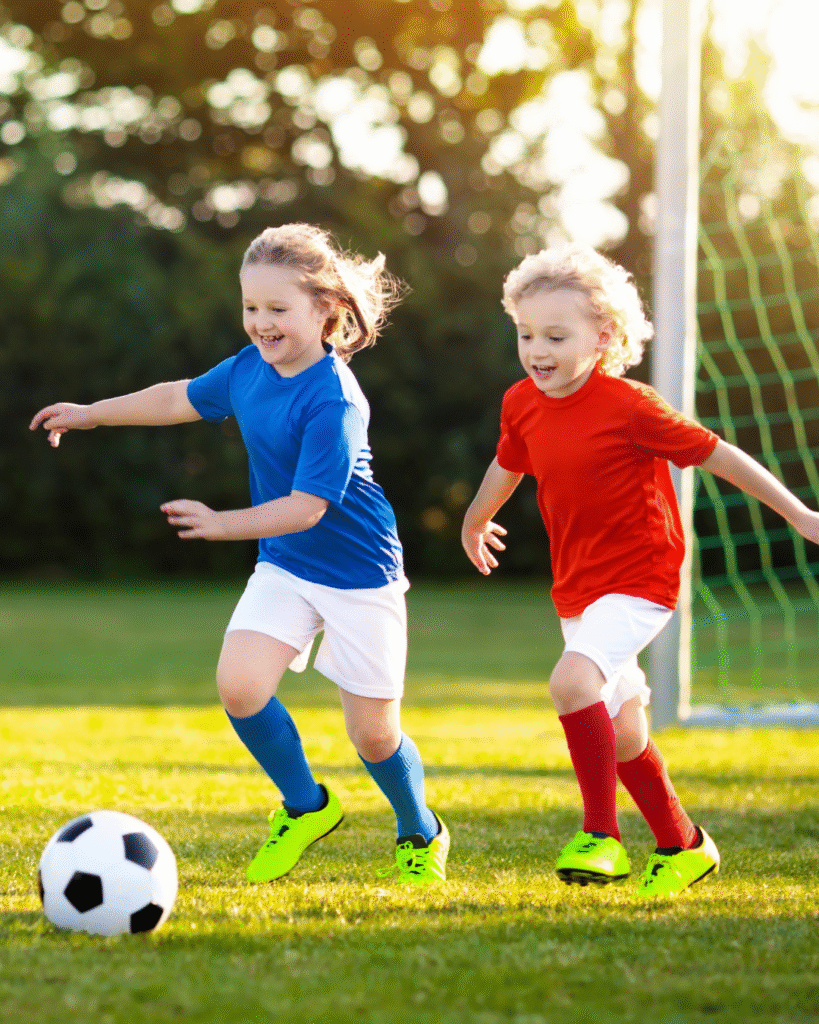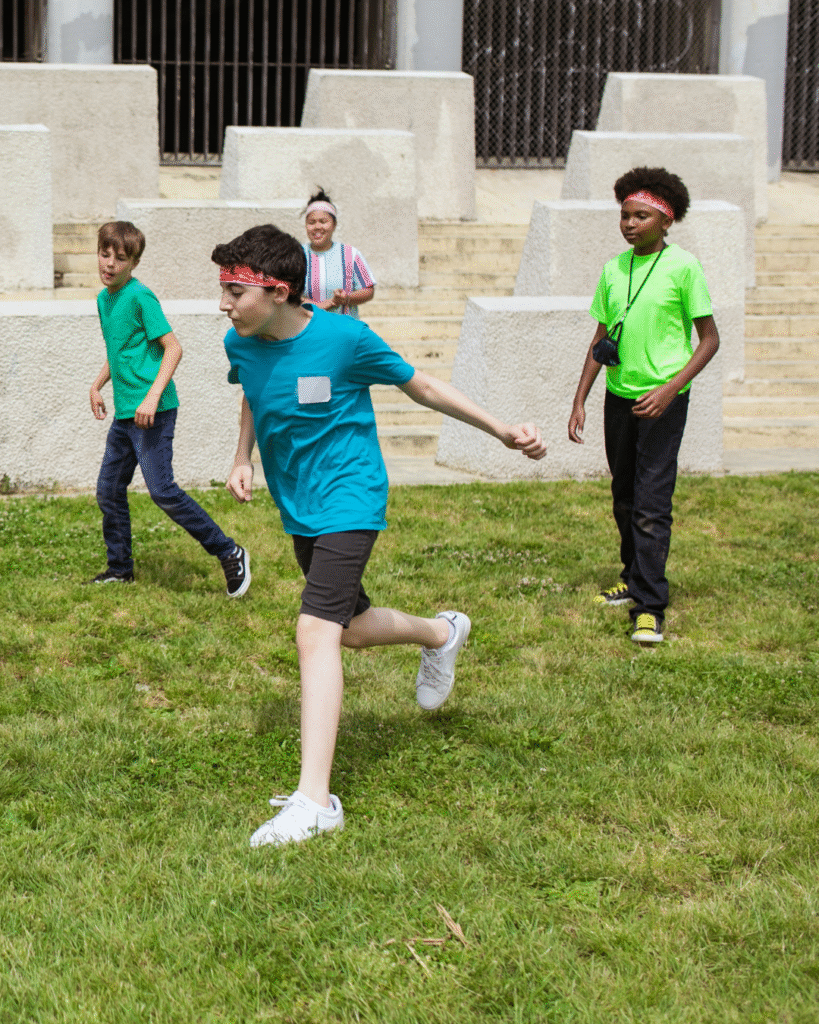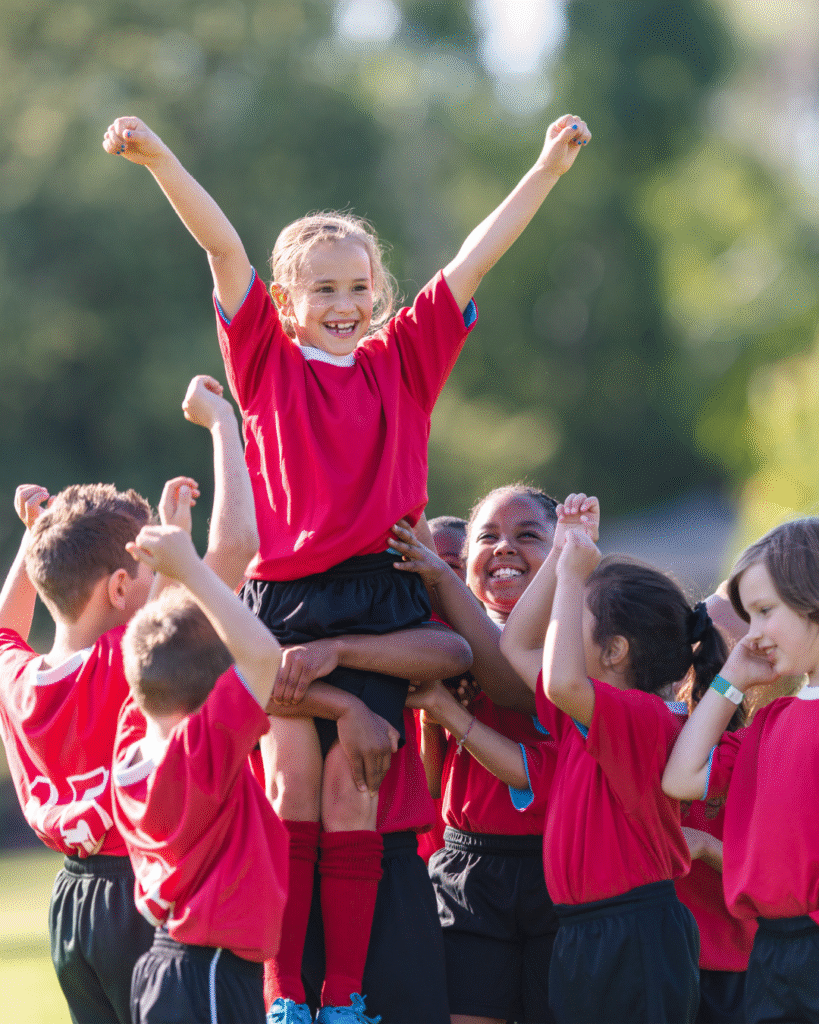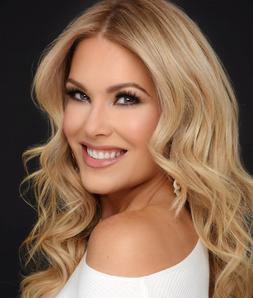When you hear stories of children thriving in sports or finding their voice through art, it’s more than just heartwarming—it’s a reminder of the incredible impact extracurricular activities can have on development. For neurodivergent children, these opportunities can be life-changing, offering a safe space to build confidence, social skills, and self-expression.
To explore the power of sports and arts for children with autism and related disabilities, we’re honored to feature Melissa Parker from The Parker Foundation. The Foundation is a shining example of how inclusion, advocacy, and creativity uplift families and transform lives.

Why Extracurriculars Matter
Extracurricular activities like sports and the arts are more than “fun ways to pass the time.” For neurodivergent children, these activities are powerful cognitive, emotional, and social development tools.
- Cognitive Development: Structured activities, such as learning soccer rules or perfecting an art technique, promote focus, problem-solving, and memory.
- Social Skills: Team sports or group art sessions create opportunities to foster communication, collaboration, and friendship. Neurodivergent children can build social bonds in a structured and supportive environment.
- Confidence: Achieving goals—whether creating a painting or scoring a goal—fosters self-esteem. It helps children feel accomplished and resilient in facing life’s challenges.
Melissa highlights, “Activities like these give children a sense of belonging. For kids who often feel misunderstood, finding a space where they’re celebrated and supported can be profoundly empowering.”
Finding Inclusive Programs
Not all extracurricular programs are designed with inclusivity in mind, but organizations are paving the way for safer, more welcoming environments for neurodivergent youth.
When looking for programs, Melissa advises parents to consider these essentials:
- Adaptability: Programs should be willing to modify activities to suit different skill levels and sensory needs.
- Supportive Staff: Coaches, teachers, and mentors must be trained and sensitive to neurodivergent children’s unique requirements.
- Community: Look for programs with an uplifting, inclusive community where families feel supported and understood.
The Parker Foundation offers this and more, modeling what truly inclusive extracurricular programs can look like.
The Parker Foundation’s Mission
Founded by Melissa Parker and her family, the Parker Foundation champions neurodivergent children through sports, art, and community initiatives. Its mission is simple yet powerful: to empower children and families through accessible and inclusive programs that foster growth, joy, and connection.
Here’s how the Foundation makes a difference:
- Adapted Sports: From soccer to martial arts, these programs are designed to focus on physical health, teamwork, resilience, and confidence.
- Art Therapy: Creative outlets like painting, music, and dance allow children to express themselves and experience therapeutic benefits.
- Community Events: Families celebrate milestones, connect with others who understand their unique challenges, and build lasting friendships.
Melissa explains, “We wanted to create a space where every child feels capable, valued, and seen. Our programs aren’t just about skill development—creating memories and support networks that last a lifetime.”

Parental Advocacy in Extracurriculars
Parents play a critical role in helping their children succeed in sports and the arts. Advocacy can ensure that accommodations are in place and that activities are both enjoyable and accessible.
Melissa recommends these advocacy steps:
- Communicate Early: In advance, share your child’s strengths and needs with coaches or instructors. This allows them to prepare and tailor the experience.
- Observe and Adjust: Attend the initial sessions to see how your child interacts in the program. Be ready to suggest tweaks to enhance their comfort and participation.
- Empower Your Child: Encourage kids to express their preferences and goals. Allowing them to advocate for themselves builds independence and self-awareness.
“Advocacy isn’t about special treatment—it’s about leveling the playing field so that every child can shine in their own way,” Melissa says.

Celebrating Achievements
Every small victory, whether mastering a new karate move or completing an art project, is worth celebrating. These achievements build confidence in children and remind families of their children’s incredible potential.
Melissa shares an inspiring story of Thomas, a 9-year-old boy with autism who thrived in the Foundation’s adapted sports program. “When Thomas scored his first goal, the team cheered. That moment wasn’t just about soccer but belonging, confidence, and joy.”
Celebrating these milestones—big or small—creates a positive feedback loop that encourages children to keep exploring and growing.
Get Inspired and Get Started
Being part of something bigger—not just an activity but a movement—can make a difference for neurodivergent children and their families.
If there’s one takeaway from The Parker Foundation’s story, it’s this: Inclusion changes lives. Whether through soccer practice, a painting workshop, or a community event, every child deserves to feel seen, capable and celebrated.
Are you looking to find programs like those offered by The Parker Foundation? Check out their website http://www.theparkerfoundation.com/ or connect with local organizations supporting neurodivergent children in sports and the arts. Remember, it’s not just about building skills—it’s about building joy, confidence, and lifelong memories.
Take the first step today. Explore inclusive programs in your area and help your child thrive!
External Links
- Inspiring Resilience: From Beauty Queen to Autism Advocate (YouTube)
Reigning Miss Universe TCP Melissa Parker shares her journey of resilience and advocacy. - Brevard Resident Melissa Parker Talks About Representing Florida at Mrs. America Pageant (Space Coast Daily)
Melissa and her husband, Ted, discuss founding The Parker Foundation for Autism and Child Development. - About Us (The Parker Foundation)
Learn about The Parker Foundation for Autism and Child Development, a Brevard County, Florida nonprofit organization. - Space Coast Podcast Network (Spotify)
A podcast episode explores Melissa Parker’s journey and work with The Parker Foundation.
Internal Links
- Prioritizing Parental Self-Care Blog
- Summary: A blog post focusing on the importance of self-care for parents raising neurodivergent children.
- How it helps: Offers practical strategies for mindfulness, stress reduction, and building a support network.
- Pamela Furr Homepage
- Summary: The main page of Pamela Furr’s website, which champions neurodiversity and inclusive growth.
- How it helps: Provides access to resources, blogs, and advocacy for neurodivergent children and their families.
- Newsletter Subscription
- Summary: A section on the website to subscribe to weekly inspiration and updates on neurodiverse education and inclusive practices.
- How it helps: Keep parents informed and inspired with the latest strategies and insights.

